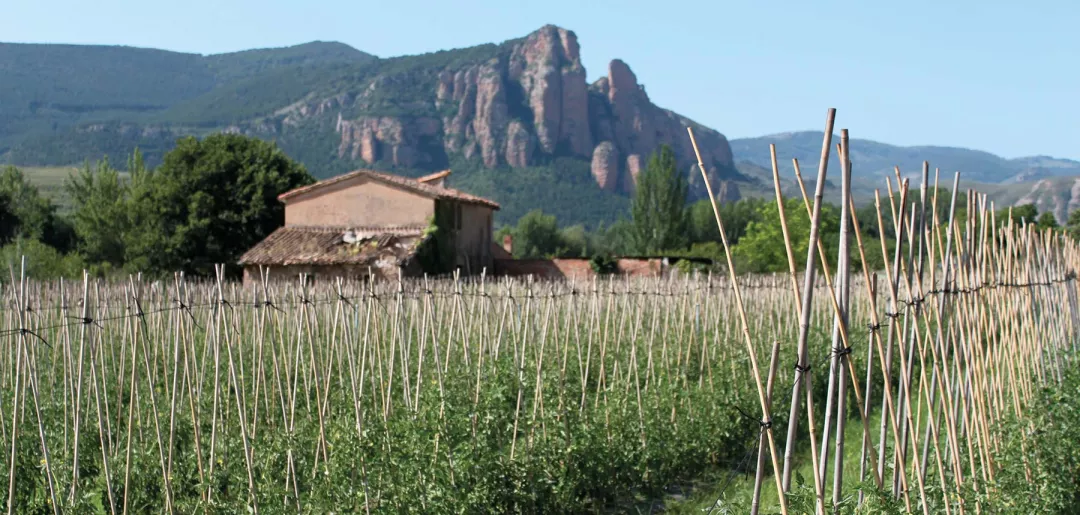Fifty new Good Practices stories capture the CAP in action
- CAP Implementation
- Agricultural Productivity
- Climate and Climate Change
- Communication
- Environment
- Food Supply Chain
- Forestry
- Fostering Knowledge & Innovation
- Generational Renewal
- Jobs, Growth and Equality in Rural Areas
- LEADER
- Long-term Vision for Rural Areas
- Networking
- Rural Development
- Smart Villages
- Social Inclusion
- Sustainability
- Tourism
Our newly-published set of Good Practice stories are now available in the ‘Projects and Practice’ section of our website, showcasing how funds from the CAP can be used effectively.

Our latest set of Good Practice stories aims to help inspire, create and share similar project benefits around rural Europe. This new batch of quick-read publications feature all 24 finalists from the 2023 Agricultural and Rural Inspiration Awards (ARIA) and collectively the 50 new Good Practice stories cover each of the three CAP General Objectives. Their content highlights an array of opportunities offered by the CAP for funding important socio-economic and environmental topics.
Soil is one such topic and conserving the productivity of EU soil not only protects the roots of our food supplies, but it also provides a fundamental foundation for all rural ecosystems. Climate and other challenges continue to increase demand for scalable nature-based solutions that sustain soil health and several ARIA finalists showcased what the CAP can do to help. For instance, outcomes from Spain’s Good Practice story about On-farm growth and application of mycorrhizae, hold potential to be a nature-based ‘silver bullet’ for soil conservation across Europe. Its genius is in its simplicity. It works by naturally enhancing farm soils with indigenous fungi roots that boost soil functionality and promote its self-regeneration.
Such benefits of mycorrhizae have been well established scientifically for centuries but their commercial use in agriculture has (yet) not been very widespread. This CAP-funded project’s demonstration value is boosted by its good practice ability to be replicated throughout the continent and its success can easily be measured with standard soil quality indicators. ARIA, and other awards organised by National Networks give important, innovative and inspirational projects like this a higher profile. They help to give project actions more prominence and offer the potential to replicate the benefits.
The agro-ecological importance of soil’s natural fungi is also highlighted by another of our new Good Practice stories, which describes a rural skills training course that the CAP co-financed for Irish farmers. The Soil Biodiversity Literacy and Enhancement Project applied bottom-up animation processes to raise awareness about, and build capacity for, agro-ecology’s comprehensive farmer-oriented principles. Project participants learned how to produce crops with a more complex nutrient density by applying agro-ecological approaches to managing climate resilient soils. A quote in the Good Practice story from one of the farmers involved sums up this cooperation project’s achievements: “Learning about the soil allows me to better manage and care for it. Understanding the world below our feet allows us to farm in a more sustainable and environmentally conscious way.”
CAP-funded participatory techniques and cooperation models are featured in more of the new Good Practices stories like Estonia’s project supporting climate-sustainable management of drained peatland forests in Pirkanmaa. Paludiculture is one of the land management practices that the CAP can support through eco-schemes. This project example involved nurturing rural skills about peatlands for multiple beneficiaries, including through so-called ´farminars´ which provided popular peer-learning possibilities. These farmer-oriented webinars were a flexible form of training that can be timed to consider farmers’ work schedules while also reducing transport and climate impacts.
It’s good to remember that CAP funding benefits extend beyond farming. Projects targeted at strengthening rural Europe’s social fabric are also illustrated by the new set of Good Practice stories. Romania’s ARIA finalist Caiac Smile project is a great example of this. It was awarded LEADER funds to help younger generations with special needs enjoy the countryside through a new rural tourism facility providing all-abilities water sport services. Working in partnership with an accredited social services provider, the project helps vulnerable young people gain independent life skills in a fun and active way.
Another ARIA finalist focused on social goals found in our latest batch of Good Practice stories is the Belgian project Food Act 13. This inspirational initiative not only prevents fresh food from being wasted by distributing it to over 5 000 families in need, but it has also trained and empowered over 130 long-term unemployed people, the majority of whom are young. Further social outcomes from CAP co-finance can be seen in the Good Practice story describing LEADER’s help to construct a workout playground for children, youth, and adults in the Slovakian village of Terňa.
Bookmark the ‘Projects and Practice’ section of our website to stay updated with all our Contact Point’s work capturing more of the best of the CAP in action.